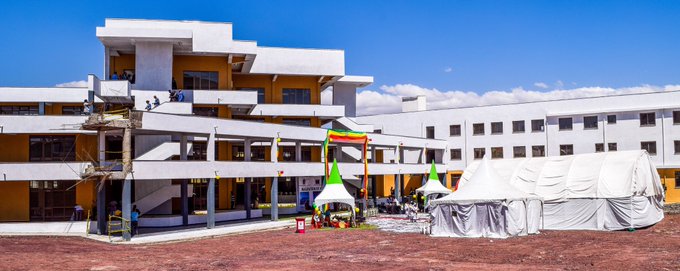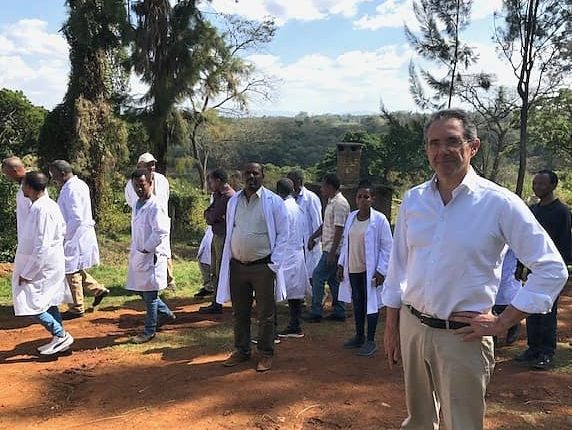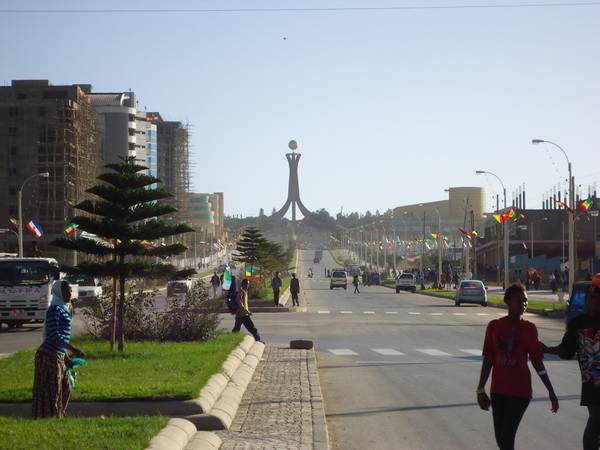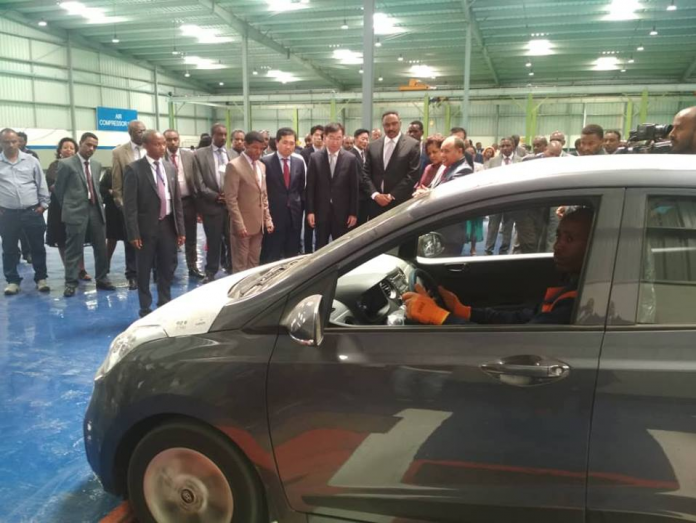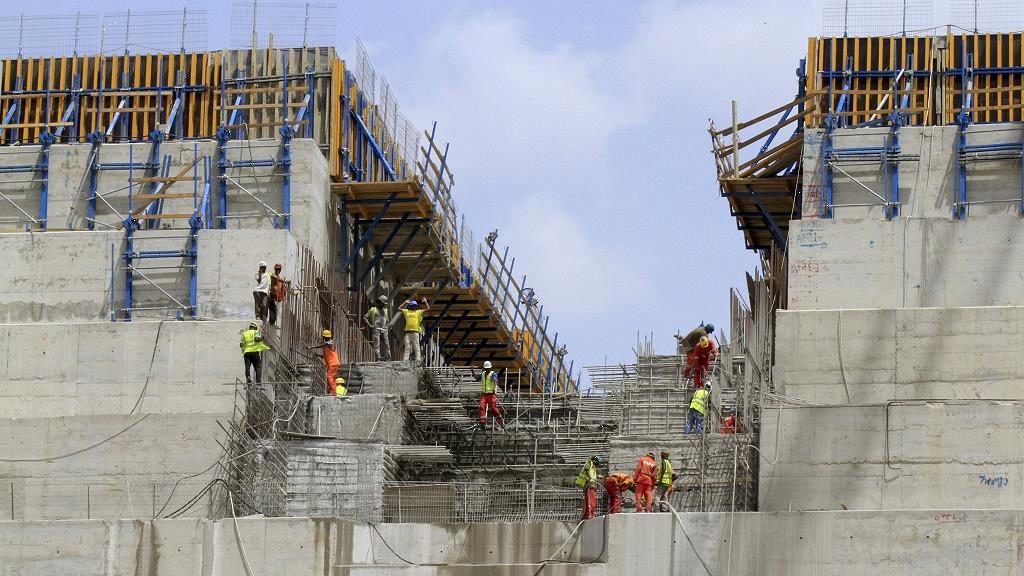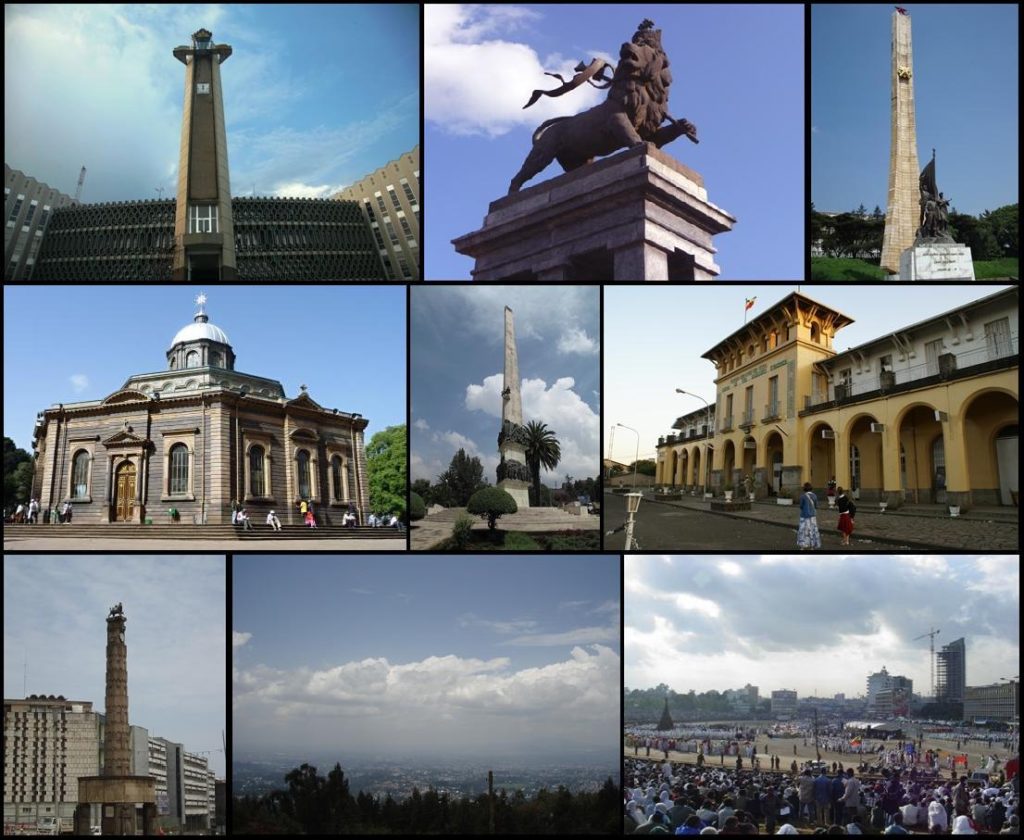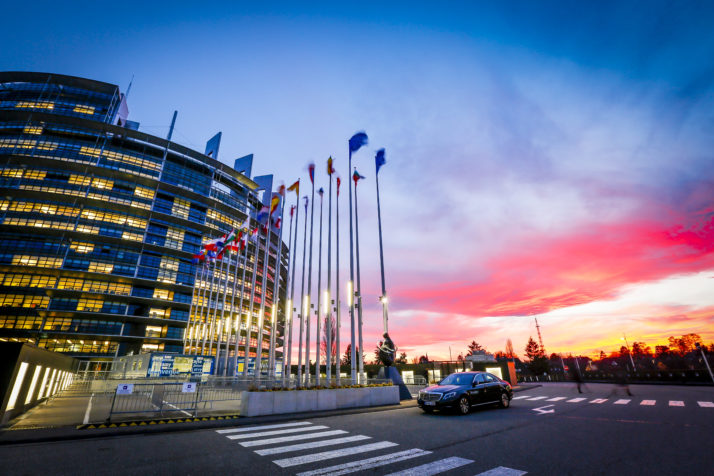
Prime Minister Abiy Ahmed of Ethiopia and visiting Kenyan President Uhuru Kenyatta inaugurated on March 2 the Debre Birhan Industrial Park (DIP), a project that will initially create 13,000 jobs.
The Ethiopian government has invested $71 million for the construction of DIP, located in Amhara Region around 170 kilometers from Addis Ababa.
Stretched on 75 hectares of land, the industrial park has eight industrial sheds ready to accommodate prospective investors.
The inauguration of the Debre Birhan Industrial Park is crucial for the development of the manufacturing sector in the Amhara Region along with the recently inaugurated Kombolcha Industrial Park, and Bahir Dar Industrial Park, which will be inaugurated soon, and the Arerti Industrial Park that is currently under construction.
The companies that will initially start production within the DIP will create jobs for 13,000 employees in the textile industry. Gradually, the Park should operate in two and three shifts, doubling and tripling the number of employees.
Recalling that Ethiopia is celebrating the 123rd anniversary of the victory of Ethiopians over Italian invasion, Prime Minister Abiy said: “…like our grandparents paid a heavy price for the independence of Ethiopia, today we are willing to make any sacrifices to assure the unity and equality of Ethiopia.”
President Uhuru on his part stressed the need for unity and collaboration to lift the people of East Africa out of poverty and lead to prosperity.
“If we are united we will prosper. If we are united, we will be peaceful. If we are united, we will be strong enough to face any enemy in any direction. I bring to you, the people of Ethiopia, a message of peace, a message of love and a message of unity,” President Uhuru said, stating that the people of Kenya, Ethiopia, Somali, Eritrea or Sudan are the same and needs to work together.
Currently, several industrial parks are already operational in Ethiopia, creating jobs for over 64,000 people.
Ethiopia plans to increase the number of operational industrial parks from the current five to around 30 by 2025, as part of its efforts to make the country a light manufacturing hub and lower-middle-income economy in the same period.
